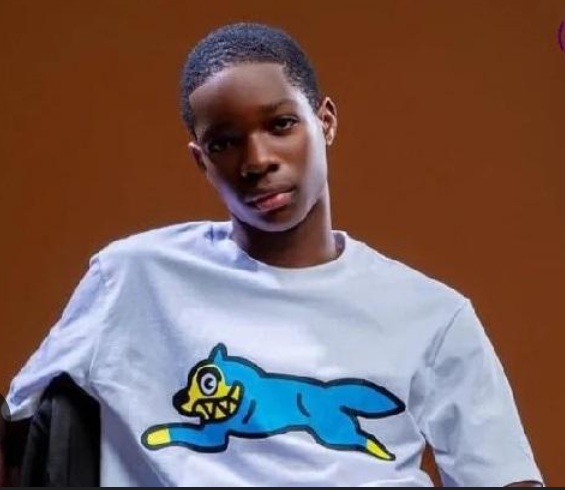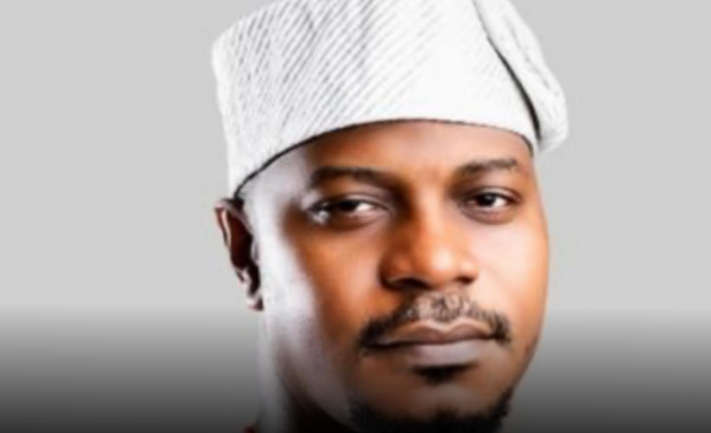
VOICES OF A FEARLESS GENERATION: WIZKID’S SON CHAMPZ STIRS NATIONAL CONVERSATION WITH BOLD MESSAGE ON NIGERIA’S INSECURITY CRISIS

In a nation grappling with rising tension, widespread fear, and the emotional exhaustion that insecurity has imposed on millions, a new voice has emerged from an unexpected corner—young, bold, emotional, and unafraid. Champz, the son of global music superstar Wizkid, has stepped into the public arena with a message that has quickly gripped the attention of Nigerians across social media platforms. His words, though simple, arrived like a tremor cutting through the noise: “We are the future of this country, and we will not accept a future filled with fear.” It is perhaps the most powerful sentiment to come from a member of Nigeria’s young celebrity circle in recent times, and it has sparked conversation about the role of youth in confronting the nation’s worsening security challenges.
Posted through his official handle, the young advocate wrote, “I speak today not because I am special, but because I am part of a generation that refuses to stay silent. We are the future of this country, and we will not accept a future filled with fear. May God protect every child still missing. And may God heal this nation that we all love.” It was a message filled with faith but also frustration—an acknowledgment of pain, a cry for justice, and a promise that the younger generation will not sit idly while the country bleeds.
The timing of his statement could not have been more significant. Nigeria has found itself battling repeated cases of kidnappings, school attacks, abductions of young students, terrorism scares, and communities living in constant dread. Videos and reports of unknown gunmen, bandit raids, and families torn apart have become painfully familiar. For many Nigerians, the fear is no longer distant; it is daily, creeping into their routines, their travels, and the way they raise their children. And now, to see a prominent young Nigerian publicly acknowledge that fear—while also rejecting it—has struck a deep chord across the country.
Social media erupted almost instantly after his post, with thousands of Nigerians praising his courage. Many expressed disbelief at his composure, considering his age, while others saw hope in the clarity of his message. “This is the kind of voice we need from young people,” one user wrote. “We cannot continue pretending everything is normal. If a child can speak up, what are the adults doing?” Another remarked that hearing such words from a celebrity child made the reality even more painful: “If someone like Champz, who could easily enjoy comfort and ignore our struggles, is speaking out, then the situation is worse than many admit.”
But beyond the reactions, his message has also opened conversations about the role of children and teenagers growing up in today’s Nigeria. For many of them, insecurity is not just a headline—it is shaping their worldview, their dreams, and their definition of freedom. Parents talk about being afraid to send their children to boarding schools. Travelers think twice before embarking on interstate road trips. Communities lock their gates before sunset. And within all this, young Nigerians are watching, listening, internalizing. They are forming opinions about the country they have inherited, and in moments like this, they are beginning to voice them.
Champz’s tone also carried an unmistakable moral appeal—his prayer for missing children was a reminder of the countless young Nigerians whose names never make the news but whose families continue to live with unbearable pain. The nation has not forgotten high-profile cases like Chibok, Dapchi, Bethel Baptist students, and numerous others, but many more remain unnamed victims of a broken system. His prayer—“May God protect every child still missing”—became a moment of reflection for parents who tremble when their children are simply late coming home from school.
His message also carried a level of emotional maturity that has drawn admiration. He did not point fingers. He did not assign blame. He did not take political sides. Instead, he appealed to unity—something that Nigeria desperately needs amid the tension, divisions, and distrust that insecurity has fueled. His final line, “May God heal this nation that we all love,” served as a quiet reminder that despite anger, exhaustion, or frustration, Nigerians still hold onto a stubborn love for their country.
This is not the first time a young voice has given Nigerians something to think about, but the impact of Champz’s words is strengthened by the influence of the background he comes from. As the son of Wizkid—an artist whose influence transcends music, geography, and culture—his statement carries a symbolic weight. It suggests that no one is too shielded to be affected by the state of the nation. It highlights the fact that insecurity does not discriminate; it affects both the unknown and the celebrated, the wealthy and the struggling, the child in a remote community and the child with a globally recognized surname.
Some analysts have said that this moment may be a turning point in how celebrity families engage with national issues. While many celebrities often avoid political conversations to protect their careers or avoid backlash, the voices of their children might create a different kind of pressure—soft but powerful, innocent yet piercing. Young voices like these are often harder to ignore because their concerns are deeply human and free from political calculation.
Others argue that this message reflects a growing trend among Nigerian youth—a desire to reclaim their country from fear. From the #EndSARS movement to student-led protests against tuition hikes, and from young entrepreneurs refusing to give up on the Nigerian dream despite economic challenges, there is a noticeable shift. This new generation is refusing silence. They are demanding accountability, safety, fairness, and basic dignity. They are shaping conversations, building communities, and using social media as a megaphone that can no longer be easily dismissed.
Still, amid the praise, some Nigerians expressed sadness that a child must even make such a statement. “Our nation has failed its young ones,” one comment read. “A child should be talking about dreams, school, and friends—not insecurity.” But perhaps that is the bittersweet power of his message: it forces the nation to confront what its children are experiencing.
As the post continues to circulate, it has become more than just a viral moment. It is becoming a symbol of a collective yearning for safety, a rallying cry from a generation that wants something better. And whether or not Champz intended it, his words have traveled beyond the screen and into national debate, inspiring discussions in homes, classrooms, online spaces, and even among public commentators.
For now, Nigeria is listening—because the voice that spoke came from a place of innocence, truth, and an unbroken belief in a better future. And in a country where despair often feels louder than hope, his words have offered something rare: a reminder that even in troubled times, the nation’s future is watching, speaking, and refusing to surrender to fear.


